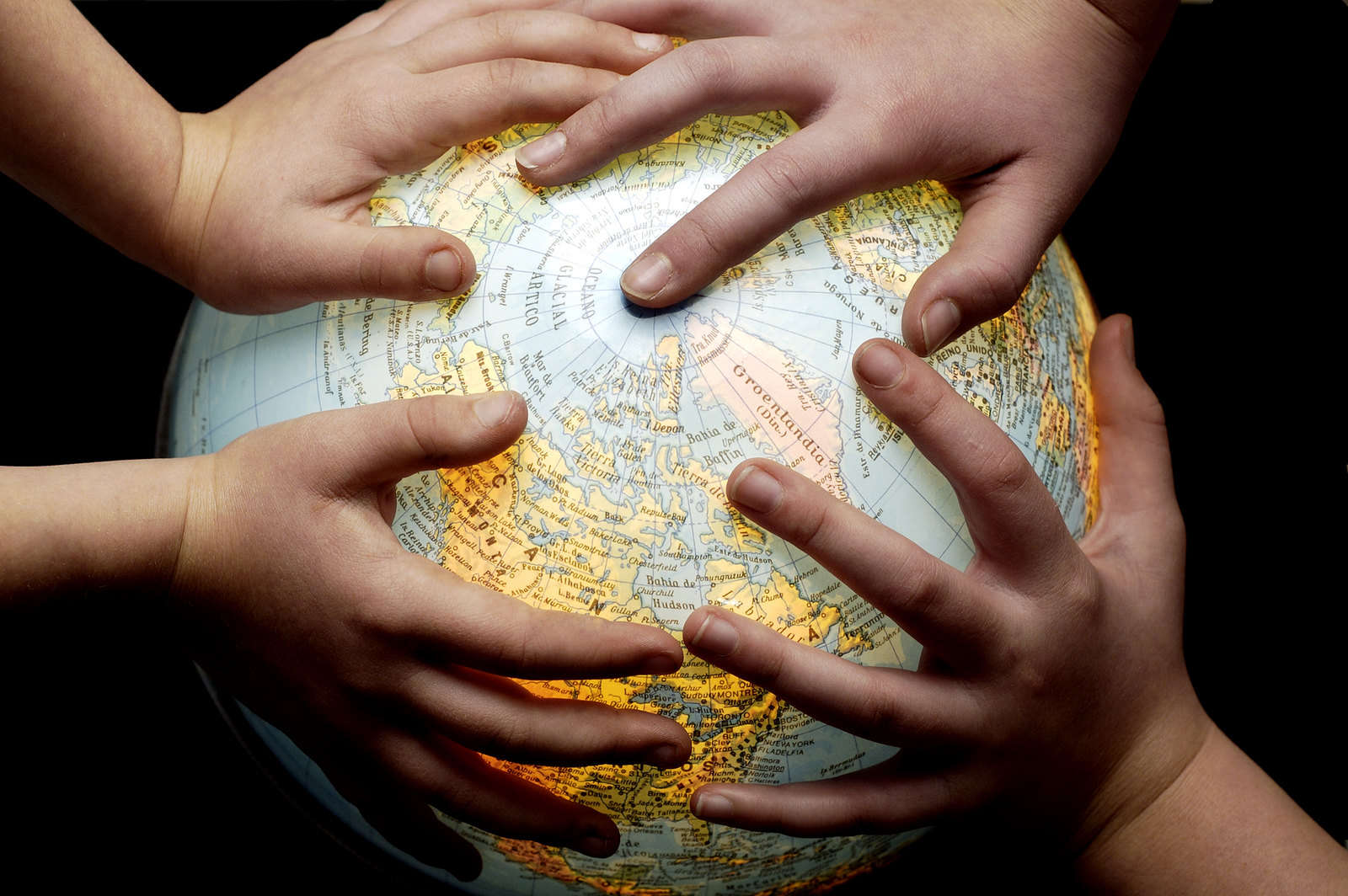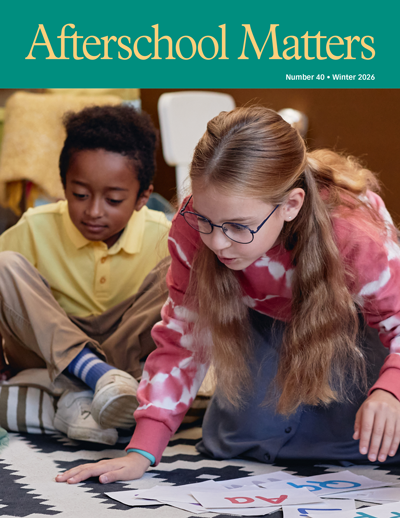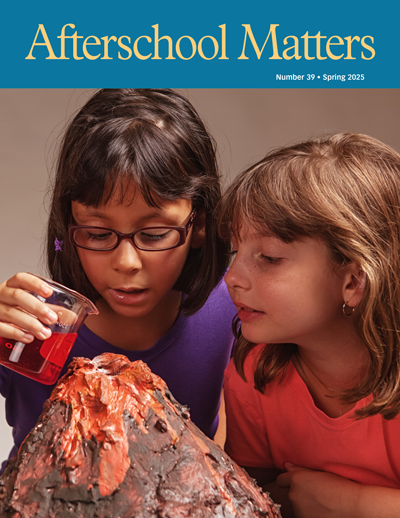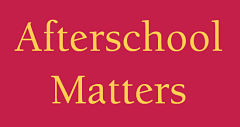Could Out-of-School-Time Programs Help Save the Planet?
September 19, 2019
Today marks the first of two Global Climate Strikes organized by young activists this week to draw attention to the climate crisis and call for a move to renewable energy. Out-of-school-time (OST) programs have long promoted student learning that encourages awareness, critical thinking, and innovative solutions around energy and the environment. Take a look at two examples from our Afterschool Matters journal.

In “It’s All Happening at the Zoo: Children’s Environmental Learning after School,” Jason A. Douglas and Cindi Katz share their experience with Animal Rescuers, an afterschool program for 20 fifth and sixth grade students in the Bronx. Through both zoo visits and a dedicated online learning platform, the students not only learned about the animals, but also “developed an awareness of the environmental issues surrounding animals in the wild.” For their final project, they created an informational website about four endangered species.
“The development of children’s morality and sense of responsibility toward animals became a central theme in the group’s zoological adventures,” Douglas and Katz say. At the same time, “The children’s response to environmental issues did not stop with a generalized concern for the planet as a whole.” They also “extrapolated that knowledge onto the local environment. During a walk in a local park, for instance, participants pointed out several sources of pollution and talked about the adverse effects on wild animals and the urban environment.” This led to discussions about how the students felt about their neighborhoods and how they could clean up and care for their local environment.
“This is the sort of lateral growth and branching engagements that OST activities are uniquely poised to encourage,” the authors conclude.
In “Youth as Community Science Experts in Green Energy Technology,” Angela Calabrese Barton, Daniel Birmingham, Takumi Sato, Edna Tan, and Scott Calabrese Barton profile the Green Energy Technology in the City (GET City) program that helps youth in one Michigan community “to develop into science and engineering experts and citizens by supporting them to take on green energy issues and to communicate findings to their community.”
The GET City students prepared a 30-minute workshop for the school’s student congress on why the school’s bathrooms should switch from incandescent to compact fluorescent lights (CFLs). It included a presentation of data, a student-created rap about bulbs and climate change, and a public service announcement video, “The Light Bulb Audit.” In addition, they created a pledge for both student and adult leaders to sign, committing to change the bulbs.
On hearing about the workshop, the local power company donated 1,000 CFLs for the youth to distribute to their schools, families, and community. “The Light Bulb Audit” was then shown on local television stations and won a statewide student film competition.
“Learning science is imperative for informed citizenship. It opens possibilities for improving one’s community,” the authors added. The GET City model of “community science expertise” gives youth “opportunities to engage in authentic, scientifically rigorous, and culturally relevant investigations and to educate others, on their own terms, about their findings.” This can also give urban, low-income, and minority students the chance for scientific learning and the possibility of future STEM (science, technology, engineering and math) careers that they might not otherwise have.
That sounds like a bright idea.



